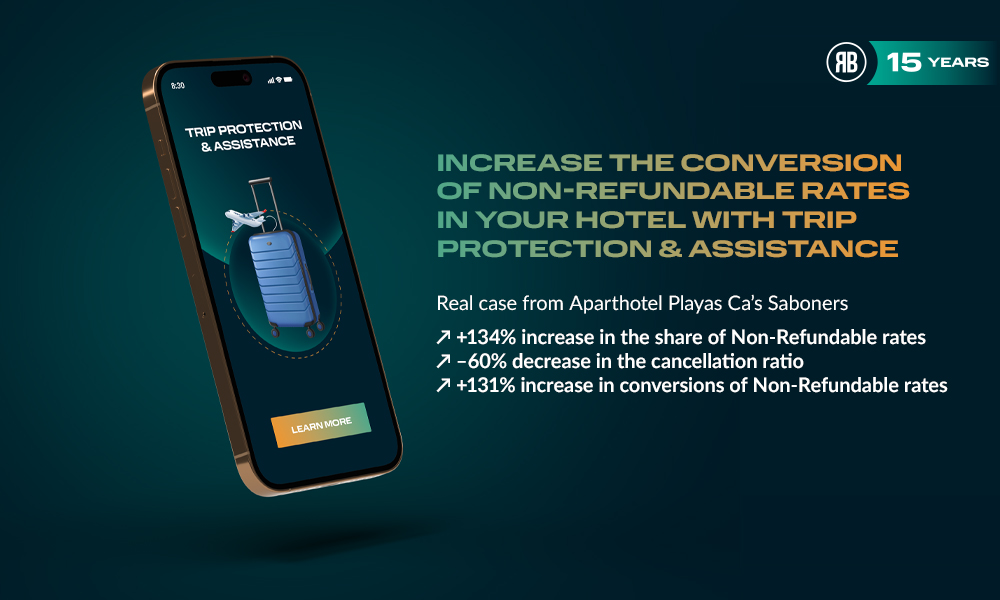Strategies to minimize waste and maximize sustainable impact
News
August 8, 2023

Content in collaboration with Bioscore Sustainability, a sustainability consultancy for tourism companies.
In the search for more responsible and environmentally friendly tourism, the efficient management of food in hotels has become a crucial issue. The hotel industry has a significant role in reducing food waste and promoting sustainable practices.
In this article, we explore various strategies that you can adopt to minimize waste in your hotel and maximize sustainable impact, thus contributing to a more conscious tourism.
The challenge of food waste
The Food and Agriculture Organization of the United Nations (FAO) estimates that approximately one third of all food produced worldwide is wasted. In the context of the hotel industry, this problem takes on significant proportions. Hotels generate a considerable amount of food waste, from preparation to service and consumption.
Food waste not only has an economic impact on accommodations, but also contributes to the depletion of natural resources and increases greenhouse gas emissions. Faced with this reality, hoteliers who are aware of sustainability have the opportunity to lead the change through the adoption of efficient practices.
Strategies to minimize food waste
Through precise strategies, from planning to awareness, the way hotels address this global challenge can be transformed.
1. Precise planning
The basis of efficient food management is precise planning. Hoteliers should estimate the actual demand for food and adjust your orders accordingly. Using historical data and analysis tools can help predict demand more accurately, thus avoiding overproduction.
2. Conscious menus
The design of conscious menus is essential to minimize waste. Offering varied options in appropriate portions can reduce the amount of food that ends up in the trash. In addition, the promotion of local dishes and seasonal dishes not only reduces the carbon footprint, but also connects guests with the local culture.
3. Proper buffet management
Buffets are places where a large amount of waste is usually generated. To address this problem, you can implement measures such as smaller-sized plates, live cooking stations or 'show cooking' to prepare food on demand from guests and the donation of surpluses to local charities.
4. Technology and monitoring
Technology plays a crucial role in efficient food management. Inventory management systems and food tracking allow hotels to monitor stock levels, predict product expiration and optimize orders. In addition, this type of tool can facilitate communication between kitchen and service staff, avoiding errors and waste.
In this sense, it is very necessary and profitable to invest in a tool that allows you to have everything under control. This is the case of our partner Bioscore, an innovative solution with which you can continuously measure and improve your sustainable practices, maximizing the positive impact of your hotel.
5. Training and awareness
It is essential to train kitchen and service staff regarding the importance of reducing food waste. Raising awareness about the environmental and economic impact of waste can motivate the team to adopt more responsible practices.
Maximizing the sustainable impact
Sustainability in the hotel industry goes beyond operational efficiency: it is an opportunity to positively impact the environment and the community.
We will discuss how maximizing this sustainable impact, through responsible purchasing, specific actions, and education, can turn hotels into catalysts for change towards a more conscious future.
1. Responsible purchasing
Opting for suppliers who prioritize sustainability and offer local and seasonal products can reduce the ecological footprint of food. Buying in bulk and minimizing packaging are also beneficial practices.
2. Composting and donations
Implementing composting programs not only reduces the amount of waste sent to landfills, but can also generate fertilizer for green areas of the hotel. Also, donating unused food to local food banks helps combat food insecurity in the community.
3. Guest education
As hoteliers, you have the opportunity to educate your guests about the sustainable initiatives you implement. Inviting guests to actively participate in reducing waste, such as requesting only the amount of food they can consume, can make a significant difference.
In short, efficient food management in hotels is essential to address waste and promote sustainable practices in tourism. As a professional in the hotel sector, you have the power to lead the change towards a more conscious and responsible model.
As you have seen, with precise planning, conscious menus, technology, staff training and sustainable actions, hotels can minimize their environmental and economic impact, while offering exceptional experiences to their guests. Adopting these strategies has significant results for a more responsible and environmentally friendly tourism. We encourage you to put them into practice!
Read more







